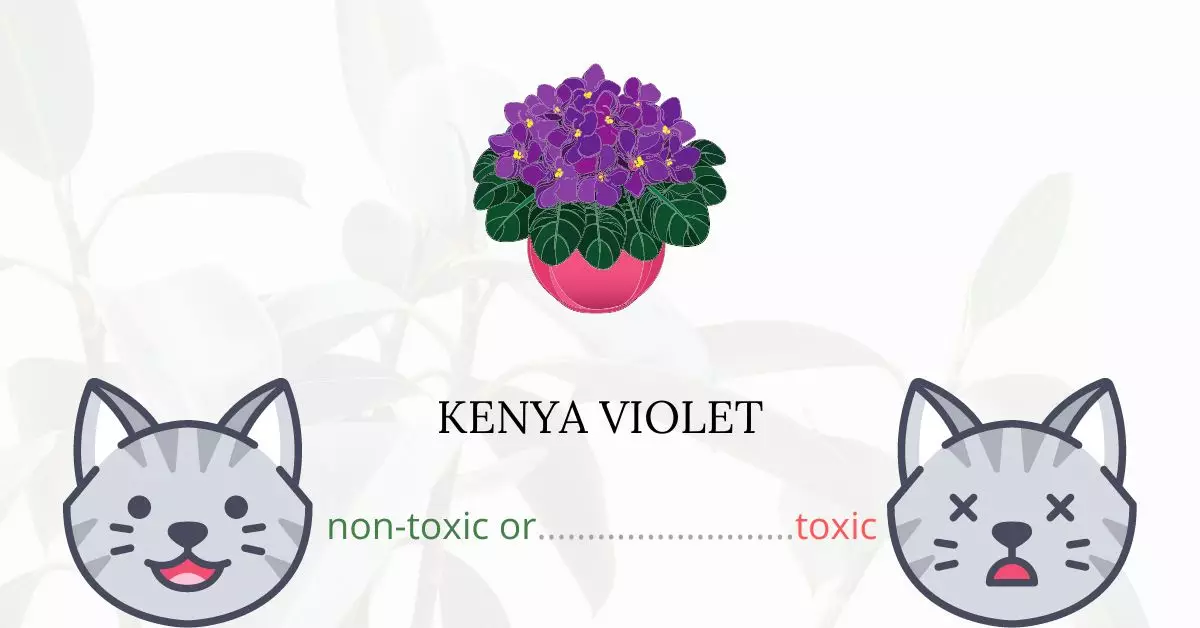Kenya Violets are non-toxic to cats when ingested.
This article was meticulously prepared in collaboration with a team of experienced DVMs (doctors of veterinary medicine). Through their expert contributions, we are able to provide accurate and up-to-date information on the potential risks associated with various plants, including the Kenya Violet. Additionally, our information is backed by extensive research from high-authority websites such as the ASPCA and PetMD, ensuring that our readers receive the most reliable advice concerning the safety of plants for their feline friends.
Can Cats Eat Kenya Violet?
Your cat won’t likely experience any problems if she only nibbles. Kenya violets cannot harm cats. Kenya violets are not poisonous to cats because of any dangerous compounds. He might still show signs of a minor illness, though, if he swallows some of it.
Kenya violets are not toxic to cats, but if they are treated with damaging fertilizers or sprayed with pesticides or herbicides, your kitties could become poisoned. Because insecticides are known to contain highly hazardous compounds, your pets shouldn’t eat the plant.
Even while one bite or nibble typically doesn’t cause any ill effects, you never know how much your cat may have eaten. If they consume such chemically treated plants, the consequences take time to manifest, eventually leading to major health problems in your pet.
What is Kenya Violet?
Kenya violet, commonly known as Usambara violet is a plant species from The Gesneriaceae Family, they are native to the Usambara Mountains of Tanzania. Due to their diminutive stature, profusion of blooms, and wide range of varieties, these blooming plants are extremely well-liked. They are frequently grown as indoor houseplants, but in some areas, they can also be grown outdoors.
It is a delicate perennial that can reach heights of 6 inches and widths of 12 inches. Although it might have several stems, the plant typically only has one crown. It features purple blooms and medium-sized, lightly serrated, green leaves with quilting. They thrive in bright, warm, and humid conditions.
Keeping Cats Away From Kenya Violet
Keep your Kenya violet on a high shelf or cabinet to avoid unwelcome nibbles. Be careful to look around for any furniture your cat could use to access it, and choose a bright area to keep your plant healthy.
Give your cat something more nutritious to eat if it is craving plants. You can also give your pet catnip, silver vine, or cat thyme as alternatives because they are all secure and beneficial.
Another way is to place aluminum foil around your Kenya violets, cats hate the taste and sound of aluminum foil and they also hate to feel and walk on it.
Plants to Avoid For Your Cats
If you are a cat owner and unsure if the plants growing in your yard are harmful to your cats, check out this list of toxic plants for cats. You can also check our list of non-toxic plants for cats.





